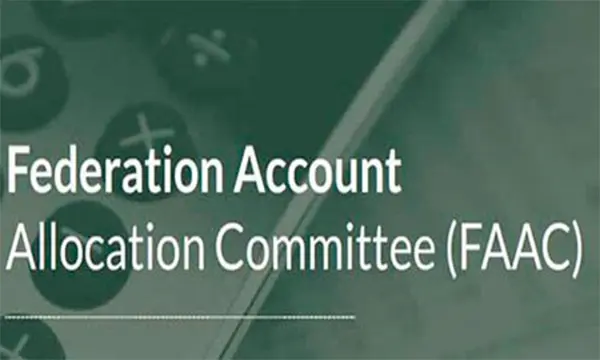Headlines
Lagos begins Start up Act 2022 implementation process

Lagos State government has organised a policy review workshop to implement the Nigerian Startup Act (NSA2022) policies for the state’s growth.
The workshop, held at Eko Innovation Centre, brought together startup founders, technology experts, innovators and enthusiasts to join the state government in domesticating the policies in the Act.
The event led to the establishment of Knowledge, Innovation, Technology, and Entrepreneurship (KITE) Project, which will equitably localise the Act.
The Act defines Nigerian startups, their scope, operations, incentives and limits to attract foreign investment, and open up the Nigerian tech industry.
A startup, according to the Act, is “a firm that has been in operation for no more than 10 years and whose aims include the invention, innovation, production, development or adoption of a new digital technology creative product, service, or method.”
Interpretatively, the act aims to provide a legal and institutional framework for Nigerian startups, as well as an enabling environment for their establishment, development and operation.
Special Adviser to the Governor of Lagos State on Innovation and Technology, Mr. Tunbosun Alake, said the NSA2022 regulations will assist startups in registering quicker and obtaining permits faster, thereby, boosting the ease of doing business.
“To drive the ecosystem and boost innovation, each state, throughout the federation, needs to adopt distinct legislation that will help foster and deepen startup activity.
“Lagos’ startup policy structure has been in development for some time before the Act. The regulations will assist startups in registering quicker, obtaining permits faster and easing business for commercial organisations classified as startups.
“It is critical for entrepreneurs in the ecosystem to participate in the workshop review to have an impact on the state legislation being drafted. The KITE project, like Silicon Valley, is a state-wide initiative that will create ICT clusters, which will promote innovation throughout the state and benefit the nation’s economy,” Alake said.
The anchor, Mr. Wale Adelaja, said the workshop was organised to allow private sector and government agencies review the policies established in the KITE project. “For an ICT business, cluster or ecosystem to be sustainable, policies to support its longevity are required,” he said.
Head of Lagos State House of Assembly Committee on Science and Technology, Hon. Olanrewaju Suleiman Afinni, at the event, urged private sector stakeholders to look over the law and make it as complete as possible so that it doesn’t need to be changed often.
Founder, Business Africa Academy, Tracy Okoro, one of the private stakeholders, who championed the Nigerian Startup Act movement, acknowledged that the NSA2022 is the result of people’s desire for change and it succeeded because a group of young people came together to champion it.
She said: “We have a volunteer group of over 800 people who drove this from beginning to end without demanding payment. The Act is significant for connecting the government with the business sector.”
The KITE project is expected to significantly contribute to Nigeria’s economic development and position Lagos State as the hub for innovation in Nigeria. Also, as the state is becoming a popular location for technology investors and entrepreneurs, it will enable the state to further push its technology and innovation agenda.
It will begin in Yaba, which will serve as a medium for the government and private sector to create an ICT cluster. Yaba is known as the bedrock of internet-enabled businesses, with over 60 startups and active venture capital firms in residence. It is also a thriving centre for innovation in Nigeria.
By 2030, the Yaba KITE cluster is expected to be Africa’s main source of transformational solutions, propelling the continent’s socio-economic progress via technological leadership, disruptive innovation, and high-quality stem talent. Access to financing, advocacy and marketing, research and development, network and cooperation, talent, skills, education, infrastructure, policy, regulation, and governance are also goals of the KITE initiative.
Headlines
Noble Ladies Champion Women’s Financial Independence at Grand Inauguration in Abuja

Women from diverse backgrounds across Nigeria and beyond gathered at the Art and Culture Auditorium, Abuja, for the inauguration and convention of the Noble Ladies Association. The event, led by the association’s Founder and “visionary and polished Queen Mother,” Mrs. Margaret Chigozie Mkpuma, was a colourful display of feminine elegance, empowerment, and ambition.
The highly anticipated gathering, attended by over 700 members and counting, reflected the association’s mission to help women realise their potential while shifting mindsets away from dependency and over-glamorization of the ‘white collar job.’ According to the group, progress can be better achieved through innovation and creativity. “When a woman is able to earn and blossom on her own she has no reason to look at herself as a second fiddle,” the association stated.
One of the association’s standout initiatives is its women-only investment platform, which currently offers a minimum entry of ₦100,000 with a return of ₦130,000 over 30 days—an interest rate of 30 percent. Some members invest as much as ₦1 million, enjoying the same return rate. Mrs. Mkpuma explained that the scheme focuses on women because “women bear the greater brunt of poverty” and the platform seeks “to offer equity in the absence of economic equality.”
Education is also central to the Noble Ladies’ mission, regardless of age. Their mantra, “start again from where you stopped,” encourages women to return to school or upgrade their skills at any stage in life. The association believes that financial stability is vital in protecting women from cultural practices that dispossess widows of their late husbands’ assets, while also enabling them to raise morally and socially grounded families.
Founded on the vision of enhancing women’s skills and achieving financial stability, the association rests on a value system that discourages pity and promotes purpose. “You have a purpose and you build on that purpose to achieve great potentials and emancipation,” Mrs. Mkpuma said.
A criminologist by training and entrepreneur by practice, she cautions against idleness while waiting for formal employment. “There are billions in the informal and non-formal sectors waiting to be made,” she said, rejecting the “new normal of begging” and urging people to “be more introspective to find their purpose in life and hold on to it.”
Mrs. Mkpuma’s management style keeps members actively engaged, focusing on vocational skills and training to prepare them for competitive markets. She is exploring “innovative integration of uncommon technologies” and is already in talks with international franchises to invest in Nigeria, with Noble Ladies as first beneficiaries.
The association’s core values include mutual respect, innovation, forward-thinking, equal opportunity, and financial emancipation. With plans underway to establish a secretariat in the heart of Abuja, the group aims to expand its impact.
The event drew high-profile guests, including former Inspector General of Police, Mike Okiro, and a host of VIPs, marking a significant milestone in the association’s drive for women’s empowerment.
Headlines
NEPZA, FCT agree to create world-class FTZ environment

The Nigeria Export Processing Zones Authority (NEPZA) has stepped in to resolve the dispute between the Federal Capital Territory Administration and the Abuja Technology Village (ATV), a licensed Free Trade Zone, over the potential revocation of the zone’s land title.
Dr. Olufemi Ogunyemi, the Managing Director of NEPZA, urged ATV operators and investors to withdraw the lawsuit filed against the FCT administration immediately to facilitate a roundtable negotiation.
Dr. Ogunyemi delivered the charge during a courtesy visit to the Minister of the Federal Capital Territory, Barrister Nyesom Wike, on Thursday in Abuja.
You will recall that the ATV operators responded to the revocation notice issued by the FCT administration with a lawsuit.
Dr. Ogunyemi stated that the continued support for the growth of the Free Trade Zones Scheme would benefit the nation’s economy and the FCT’s development, emphasizing that the FCT administration recognized the scheme’s potential to accelerate industrialisation.
Dr. Ogunyemi, also the Chief Executive Officer of NEPZA, expressed his delight at the steps taken by the FCT minister to expand the economic frontier of the FCT through the proposed Abuja City Walk (ACW) project.
Dr. Ogunyemi further explained that the Authority was preparing to assess all the 63 licensed Free Trade Zones across the country with the view to vetting their functionality and contributions to the nation’s Foreign Direct Investment and export drives.
“I have come to discuss with His Excellency, the Minister of the Federal Capital Territory on the importance of supporting the ATV to succeed while also promoting the development of the Abuja City Walk project. We must work together to achieve this for the good of our nation,” he said.
On his part, the FCT Minister reiterated his unflinching determination to work towards President Bola Ahmed Tinubu’s Renewed Hope Agenda by bringing FDI to the FCT.
“We must fulfil Mr. President’s promises regarding industrialization, trade, and investment. In this context, the FCT will collaborate with NEPZA to review the future of ATV, a zone that was sponsored and supported by the FCT administration,” Wike said.
Barrister Wike also said that efforts were underway to fast-track the industrialisation process of the territory with the construction of the Abuja City Walk.
The minister further said the Abuja City Walk project was planned to cover over 200 hectares in the Abuja Technology Village corridor along Airport Road.
According to him, the business ecosystem aimed to create a lively, mixed-use urban center with residential, commercial, retail, hospitality, medical, and institutional facilities.
He added that the ACW would turn out to be a high-definition and world-class project that would give this administration’s Renewed Hope Agenda true meaning in the North-Central Region of the country.
Barrister Wike also indicated his continued pursuit of land and property owners who failed to fulfil their obligations to the FCT in his determination to develop the territory.
Headlines
Benue IDPs block highway, demand return to ancestral homes

Vehicular movement along the Yelwata axis of the Benue–Nasarawa highway was brought to a standstill on Wednesday as Internally Displaced Persons, IDPs, staged a protest, demanding immediate return to their ancestral homes.
The protesters, believed to be victims of persistent attacks by suspected herdsmen, blocked both lanes of the busy highway for several hours, chanting “We want to go back home”.
The protest caused disruption, leaving hundreds of motorists and passengers stranded.
Eyewitnesses said the displaced persons, many of whom have spent years in overcrowded IDP camps, are expressing deep frustration over the government’s delay in restoring security to their communities.
“We have suffered enough. We want to return to our homes and farms,” one of the protesters told reporters at the scene.
Security personnel were reportedly deployed to monitor the situation and prevent any escalation, though tensions remained high as of press time.
Efforts to reach the Benue State Emergency Management Agency, SEMA, and other relevant authorities for comment were unsuccessful.
-

 Headlines4 years ago
Headlines4 years agoFacebook, Instagram Temporarily Allow Posts on Ukraine War Calling for Violence Against Invading Russians or Putin’s Death
-

 Headlines4 years ago
Headlines4 years agoNigeria, Other West African Countries Facing Worst Food Crisis in 10 Years, Aid Groups Say
-

 Foreign3 years ago
Foreign3 years agoNew York Consulate installs machines for 10-year passport
-

 News1 year ago
News1 year agoZero Trust Architecture in a Remote World: Securing the New Normal
-

 Entertainment3 years ago
Entertainment3 years agoPhyna emerges winner of Big Brother Naija Season 7
-

 Headlines1 year ago
Headlines1 year agoNigeria Customs modernisation project to check extortion of traders
-

 Economy2 years ago
Economy2 years agoWe generated N30.2 bn revenue in three months – Kano NCS Comptroller
-

 Entertainment2 years ago
Entertainment2 years agoMovie download platform, Netnaija, announces closure














